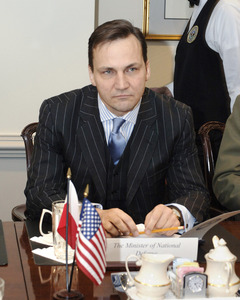On February 5, 2007, Polish Prime Minister Jaroslaw Kaczynski accepted the resignation of Defense Minsiter Radoslaw Sikorski. Although Sikorski's departure will have few short-term implications, over the long term it could weaken Poland's support for several important American-led security initiatives. Sikorski indicated that he resigned out of frustration because the government would not provide him with sufficient resources to ensure the success of the country's expanded role in the NATO-led post-conflict stability operation in Afghanistan. Characterizing the deployment as Poland's "most dangerous mission since WWII," Sikorski had unsuccessfully requested substantial funds to enable the Polish military to generate goodwill among the local population by building schools and hospitals. Some of the Polish media attributed the resignation to a power struggle between Sikorski and Antoni Macierewicz, the head of Poland's military counterintelligence agency. The two have repeatedly clashed during the past year. Most recently, Sikorski complained about the agency's excessive autonomy and the allegedly poor quality of the information it had been supplying regarding Afghanistan. Macierewicz had criticized Sikorski's failure to remove Soviet-era communist appointees from the defense ministry, a priority of the new prime minister and his twin brother, Lech, the Polish president.
Resignation of Polish Defense Minister Could Damage U.S.-Polish Security Ties

